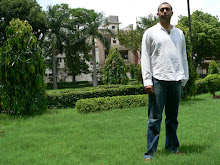This was a reply to a Chinese friend of mine who had been incensed by the reporting of the riots in north west China. He had written to me that:
"The western media is still in 19th century colonism era, it just reports remote strange things to pleased its own audience or make them pour their cheap sympathy, rather than to find out the truth."
Here's the somewhat refined response:
On the matter of Xin Jiang I understand that this has been a very delicate subject in China. In defence of the news business I would say that western reporters write what they see. However the problem is one of context.
Newspapers in the west deal largely with the present not the past. Editors in London and New York are not that interested in what happened in Xin Jiang over the last 60 years. They know more about Italian holiday destinations than Central Asian ethnic identity.
Because western journalists lack a historical memory they forget how difficult it was to modernise their own societies and economies. They forget that whole races were wiped out (eg Native Americans), people enslaved (Africa), countries shackled (India) and others drugged (China).
The history of how rich countries got rich is a sorry affair but today's western newspapers are not burdened by this knowledge. They prefer to point the finger at developing societies and say protect minority rights when they themselves never did. This is newspapers' "curse of the present".
The best argument that western reporters have is that developing countries should not make the same mistakes that developed countries did. I have some sympathy with this. But this "best practice" argument is only relevant when western newspapers can say fairly that they are truly interested in the development of poorer nations. It is in poorer countries where the west's political project (liberty, democracy etc) comes into conflict with established culture and establishment power.
But which western newspaper can honestly say they are interested in such things rather than the death of a musician? I have yet to find one. After working for six years in South Asia I have become cynical about the moral pedestal placed under the seat of many journalists.

No comments:
Post a Comment